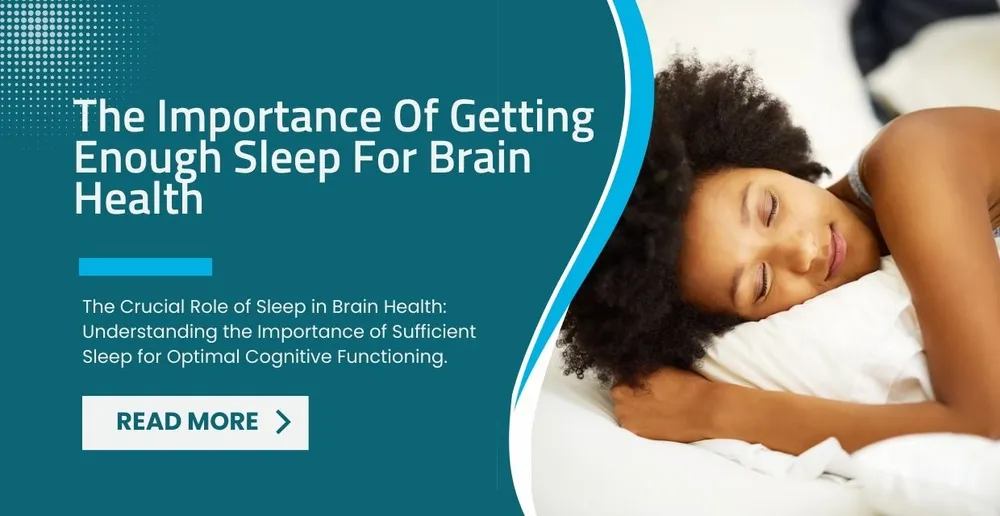Being Sleep Deprived Is Not Something To Be Proud Of Importance Of Sleep For Brain Health
Being sleep deprived is not something to be proud of. Sleep is essential for maintaining mental health and brain function. Your brain sorts over the memories you make during the day as you sleep, enhancing the significant ones. The brain region that controls self-control is called the prefrontal cortex, and the amygdala, the brain's emotional center, which cooperates to keep your emotions in check, can communicate more quickly after a full night's sleep.
Sleep is an essential process that allows your body and mind to recover so that you can wake up feeling rejuvenated and aware. Without enough sleep, the brain cannot work efficiently. Your ability to concentrate and think clearly may be impaired.
Adults typically require seven to nine hours of sleep per night. Children and teenagers need substantially more rest, mainly if younger than five. Medical conditions, work schedules, everyday worries, a noisy bedroom, and other factors can keep us from getting adequate sleep. A balanced diet and favorable lifestyle choices can ensure an appropriate quantity of sleep each night. Still, persistent sleeplessness may be the first indication of a sleep disorder for some people.
The Science Behind Sleep
Your 24-hour sleep-wake cycle is referred to as your circadian rhythm.
It enables you to manage your daily sleep and wakefulness pattern. Along with other things, light and darkness have an impact on circadian rhythm. In response to cues from your environment, your brain changes your body's temperature, activates specific hormones, and controls your metabolism to either keep you awake or put you to sleep.
Some people may develop circadian rhythm disturbances as a result of environmental influences or sleep issues. You can adapt to your body's natural rhythms better by upholding healthy behaviors.
The circadian cycle is influenced by light. When the eyes are exposed to either natural or artificial light, signals are processed by a specific section of nerve cells in the hypothalamus called the suprachiasmatic nucleus. The brain uses these signals to decide whether it is day or night.
As the sun sets in the evening, the body begins to release the drowsy hormone melatonin. As the sun rises in the morning, the body starts to release the hormone cortisol, which encourages energy and alertness.
The Importance Of Getting Enough Sleep
Adults require at least seven hours of sleep per night for healthy cognitive and behavioral processes. A lack of sleep can have severe adverse effects. People who lack sleep are more prone to distractions, diminished cognition, delayed responses, and mood swings.
The idea that people can adapt to long-term sleep deprivation is being normalized. They may not be conscious of their limitations because getting less sleep seems normal, even though their bodies and minds suffer from a lack of sleep. In addition, a lack of sleep has been associated with a higher risk of developing some illnesses and ailments.
A few of them are obesity, type 2 diabetes, high blood pressure, heart disease, stroke, poor mental health, and early mortality.
People who do not receive sufficient sleep each night can implement some positive lifestyle and sleep habits to log the needed amount of hours. These include the following:
Set a reasonable bedtime and adhere to it every night, including on the weekends.
Keep your bedroom at a cozy temperature and with minimal lighting.
Maintain a cozy sleeping environment by making sure you have the right mattress, pillows, and linens for your body type and preferred sleeping position.
Think about imposing a "screen ban" on your bedroom computers, tablets, cell phones, and televisions.
Abstain from coffee, alcohol, and heavy meals in the hours going up to night.
Avoid smoking at all hours of the day or night.
Exercise during the day to help you relax and get ready for bed at night
At LifeCare Hospitals, we understand the importance of getting adequate sleep. Our goal is to provide our patients with a healing environment where they can get the restful sleep they need to recover from illness or injury. We provide comfortable beds and quiet rooms to create a peaceful atmosphere conducive to restful sleep. Additionally, our team of healthcare professionals works closely with patients to identify any underlying issues that may be interfering with their ability to fall asleep or stay asleep. Schedule an appointment with our experts today.



